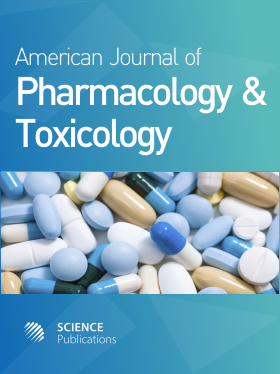A Prospective Evaluation of Antihypertensive Medications Safety and Efficacy in United Arab Emirates Private Hospitals
- 1 Ajman University of Science and Technology Network, United Arab Emirates
Abstract
Problem statement: Hypertension is one of the most important risk factors for heart and cardiovascular diseases in the United Arab Emirates (UAE). Evaluation of the safety and efficacy of antihypertensive medications in UAE private hospitals is important. The importance arises because of the high prevalence of hypertension in this multicultural region. This study evaluated the use of antihypertensive medications among patients suffering from hypertension alone or with other medical conditions. Approach: A prospective observational study was conducted using 400 hypertensive inpatients randomly selected from private hospitals to evaluate the safety and efficacy of antihypertensive medications in UAE. Patients were diagnosed to have hypertension with or without other medical conditions and both males and females were included in the study. The study included all nationalities that live in the UAE. All data were collected either from patient's files, interviewing physicians, nurses or by interviewing the patients during the period of admission. Results: Analysis of the 400 patients revealed that most of them were male (87.5%), Arabs (45%), Indians and Pakistan (37.5%) and Asians (10%). A correlation exists between certain factors and the prevalence of hypertension like nationality, age, gender and occupation. Family history of hypertension is important to determine the genetic inheritance of hypertension, 82% of hypertensive patients with or without other medical conditions had a family history of hypertension (23% of them had fathers suffering from hypertension, 23% had mothers with hypertension and 36.4% having both parents with hypertension. There was no statistical significant difference in DBP between female and male patients (mean DBP; 79 Vs 82.9 mmHg respectively, p = 0.076), but there was a difference in the mean SBP between females and males (mean SBP 149 Vs 138 mmHg respectively, p-value = 0.044). The reported adverse drug reactions during the study were headache, dizziness and peripheral edema, shortness of breath, nausea, gastrointestinal tract problems and muscle cramps. Conclusion: Many factors contribute to the increase in blood pressure; family history and life style were considered the most important factors. Combination therapy appeared to be associated with high rate of adverse drug reactions; enough to warrant either decreasing the number of medications or changing the medication. More effort from all medical professionals and patients was needed in order to minimize the risk of uncontrolled hypertension in the UAE.
DOI: https://doi.org/10.3844/ajptsp.2010.89.94

- 4,706 Views
- 3,460 Downloads
- 4 Citations
Download
Keywords
- Hypertension
- UAE
- antihypertensive
- evaluation
- cardiovascular
